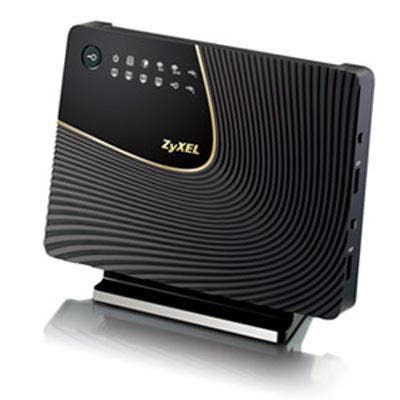New Zyxel Sales Boss On Retooling Channel Program, And Pinching Partners From Cisco Meraki, Ruckus And Ubiquiti

Gearing Up
David Soares is planning to make a splash in the early days of his tenure as vice president sales North America at networking industry veteran Zyxel.
Soares has been with Zyxel three months, and was named North America sales leader Tuesday. In the new role, Soares will have responsibility for Zyxel's channel operation, and he already has plans for a few important changes, including beefing up program rebates, convincing more VARs to take on the challenges of becoming managed service providers, and aggressive partner recruitment efforts.
Partner recruitment will focus on MSPs that are looking to defect from competitors' programs or to bring on an additional vendor to complete a multivendor networking strategy, Soares said.
Soares has spent the bulk of his nearly 30-year career with startups. Most recently, he spent 16 years at Netgear, where he was part of the executive team that grew the company from its birth to its IPO in 2003. At Zyxel, he replaces Matt Dargis, who is now vice president at Kensington.
After leaving Netgear three years ago, Soares spent a year in film school, made an investigative documentary about the secondary education system in Jamaica, and traveled for two years indulging his passion for wildlife.
What follows is an edited excerpt of Soares' conversation with CRN.

What are your partner recruitment plans for the coming year? How many new partners would you like to sign up in 2018?
We do want to recruit MSPs. There's a two-pronged approach to what we're doing. One, is we're approaching our existing VAR base and trying to help them to become MSPs, and in addition to that we want to recruit MSPs next year as well. We'll be doing it both ways. I would like to recruit an additional 30 midsize MSPs next year, and when I say 30, I mean real, selling-products-on-a-regular-basis MSPs next year.

Do your partner recruitment efforts include getting MSPs to come away from bigger players in the market, like Cisco Meraki or Ruckus?
Yes. It is to lure them away from some of those guys. Some MSPs like to have a two-vendor strategy. Ideally, they only want to use one vendor, but some of them feel a bit tied in if they only have one vendor. So some MSPs are looking for two vendors for a two-vendor strategy. We can fit in there, as well. Some may use Ruckus, for example, and also use Zyxel. With Ubiquiti, it tends to be more binary. Some MSPs that sell Ubiquiti are looking for second options, as well, but there are some Ubiquiti MSPs that are not at all happy with the reliability and are looking to change altogether to a different vendor, and that's a good opportunity for us. We'll be starting the campaign early next year to recruit the new MSPs. A new version of our cloud software is coming out by the end of January, and then we'll launch the partner recruitment program.

Your background is primarily in startups, or early stage companies. How did you end up in that particular arena?
The idea of a startup always attracted me. I started my career with a startup, Hayes Modems. That was back in the days of dial-up modems. I was one of their first employees in Europe. I was based in the U.K. at the time. Was with them for about 12 years. Went to Netgear in 1998, so they were just starting up as well. I really enjoy the startup culture, and I saw both of those companies grow, especially Netgear. I wanted to go back to a startup again.

Zyxel isn't a startup, though. What attracted you to a job with a more established company?
Zyxel is not a startup. We've been around for a while, but a friend of mine who I worked with at Netgear, told me about this position. He was quite keen for me to join Zyxel. What attracted me to it is the part of Zyxel that I'm running, which is the channel side, is small and has a startup-type spirit to it. I felt I could make a real difference for them and help them through some of the challenges that are occurring in the market and in the channel, as well. The other side of Zyxel is the service provider business, which is quite big. It's the biggest part of Zyxel in the U.S., make products for Time Warner and Comcast, etc.

What are the challenges for the channel operation?
One of the things I saw when I joined Zyxel is the number of VARs selling our products every month was declining, and when I talked to distribution, it looks like that's a trend in the industry where the number of VARs is declining. We were looking into why that was, and when I speak to VARs, they're finding it hard to compete against e-commerce. They're having to change the way they do business. A VAR can provide a customer with more consultation and advice on what solution might be best for them and then charge the customer an installation fee separate to the hardware they sell to the customer, but more and more customers are actually buying the hardware from e-commerce and many customers are installing the hardware themselves. Even in small businesses, they might have someone who's the guru.

What are you seeing in the market that could counter that trend?
One of the things that's changing, and one of the things we're seeing at Zyxel, is that the cloud networking products can be pretty easy for a VAR to provide network managed services to their customers. There are more and more customers who like the idea of network managed services where your VAR takes care of the network for you on an ongoing basis. You pay them a monthly service fee and they make sure your network stays up and running, and that means there's less chance for downtime on your network. We've seen some success in that area where VARs are making the transition from VAR to becoming a managed service provider using our cloud network managed services.

That's a big change for a traditional VAR to make. What is Zyxel doing to help ease that transition?
One of the things we're providing to our VARs is financing services. More and more customers are leasing the equipment rather than buying it outright. We've teamed up with a financing company called LEAF [Commercial Capital], and they're pretty big in the lease financing world. We give our customers access to lease financing and more and more customers are choosing the option to lease from the VAR or the MSP and take the managed services option, as well. So, the customer pays the MSP a monthly fee for both the lease for the equipment and the fee for the managed services. The VAR gets recurring revenue from the customer over time in return for managing the customer's network. That's something that e-commerce can't provide. It's a unique service that VARs can provide to differentiate themselves from e-commerce more.

Do these changes in the market require you to change the structure of the Zyxel channel program?
I am changing the partner program. Our current partner program has two levels to it. The two discount levels partners get are 10 percent and 20 percent. I felt that that gap was quite large, and I felt that the 10 percent level was probably not rewarding the VAR enough for the services they were providing their customers. The new program will have two levels of discount. There will be 18 percent and 22 percent. The old discount for the two tiers in the program, that didn't apply to all the products. Some products were excluded from that. The two new levels are actually 8 percent and 12 percent for all products, and in addition to that, there's an additional 10 percent for selected products, and that's how you get to the 18 or 22 percent.

Are the financing options you described available across the board?
Just because you're in the program doesn't mean you get access to lease financing. There are separate qualifications for that, but it gives them better access to the lease financing that they can pass on to their customers. The VAR can choose to go through them to the end customer, or they can sign the customer up with the leasing company separately. One of the benefits of leasing for the customer, of course, is that they don't have the up-front Capex cost, the up-front layout for the hardware, which more and more customers are finding an attractive option. It's becoming more and more important.

Can you tell me about the new version of Zyxel's cloud software?
One of the aspects of the system as it exists today is customers have to buy Zyxel hardware that is specific to our cloud networking system, which is called Nebula. So if you want to use Nebula, you have to buy the Nebula-specific hardware. With the new version that's coming out in January, it will work with all of Zyxel's current networking hardware, so the customer doesn't have to buy Nebula-specific hardware. That's the biggest change. It means it's easy for existing customers to migrate to Nebula if they want to do that because it will work with what used to be non-Nebula hardware. Quite frankly, that's the way we should've done if from the beginning, but we're doing it in January and I'm glad it's getting done.

What does your customer base look like today? Where will those new MSPs be focusing?
In our customer base there's three types of customers that Zyxel products are used by mainly. One is the small business; the other is schools and education, K-12 especially is where Zyxel does quite well; and thirdly, it's in the resort and leisure industry, and that's where we're seeing a lot of traction with MSPs, in hotels, for example, that get fitted out with Wi-Fi equipment. Some of the MSPs are using our products in those types of environments. They can be parts of large chains, they're larger companies, but we're supporting them at the hotel level to provide Wi-Fi services to customers or to deploy Wi-Fi for internal offices at the hotel.

What's your read on the competitive landscape, and where does Zyxel fit in the mix?
In the Wi-Fi space, the competitors we would come in contact with most are [Cisco] Meraki, Ruckus and Ubiquiti. Where we fit in is we tend to be a more affordable solution than Meraki and Ruckus. Meraki tends to go in at the beginning at a very competitive price then they jack up the licensing fees for the customer later on, so it's overall a more expensive solution for customers, as is Ruckus. Ubiquiti is a cheaper solution, but the feedback we have from the channel is that there are reliability issues. Their access points tend to fail more quickly. One of the things we pride ourselves on at Zyxel is the reliability of the products we make. We put a lot of effort into making sure heat dissipation is good, because that's important to the longevity of the chips, especially. For the power supply, the components we use are high quality, as well.

What do you see in the market that looks favorable for Zyxel in the coming year?
The benefit for Zyxel, I really believe, is that we are the best value proposition in the market. We offer the quality hardware at a more affordable price. Over time, Zyxel is the most cost-effective solution for the customer. That's our competitive advantage in the market, and that's what the MSPs that are selling Zyxel today like about our product.